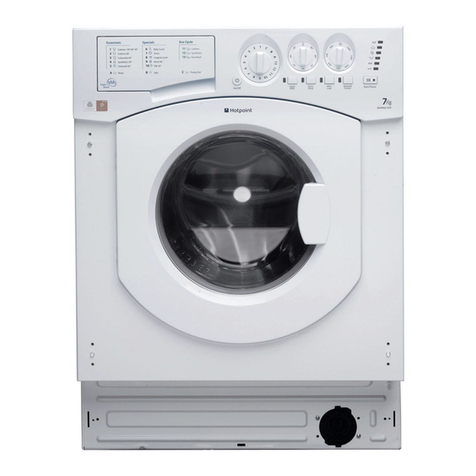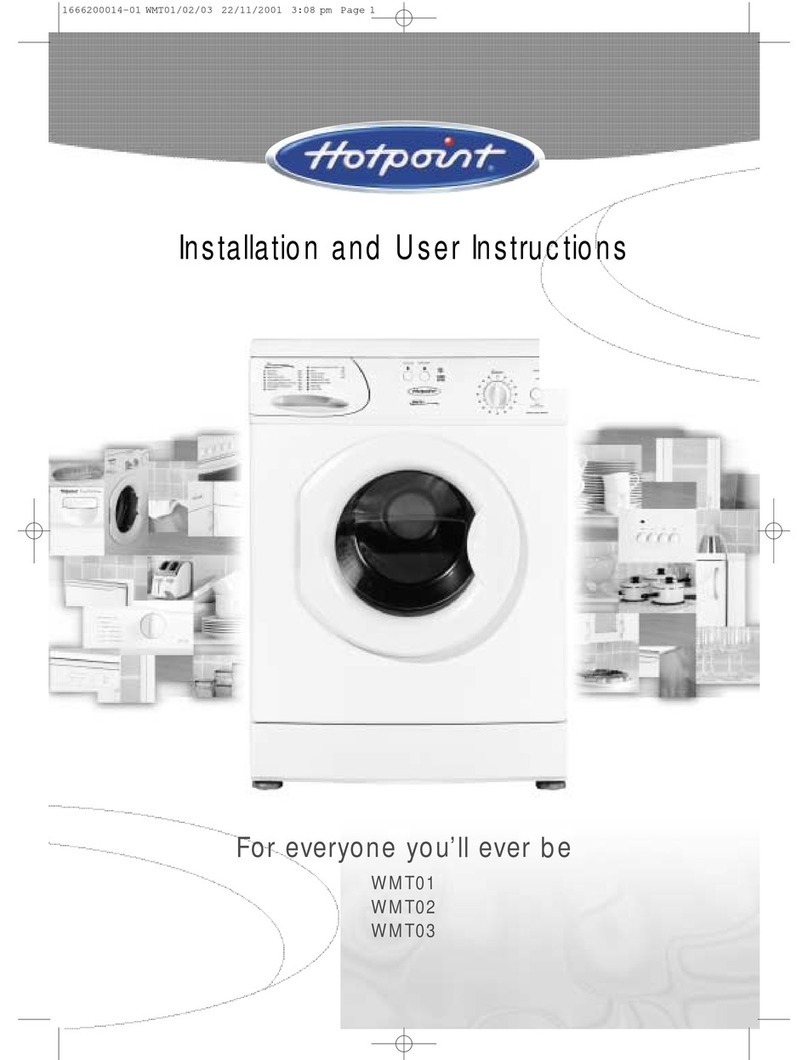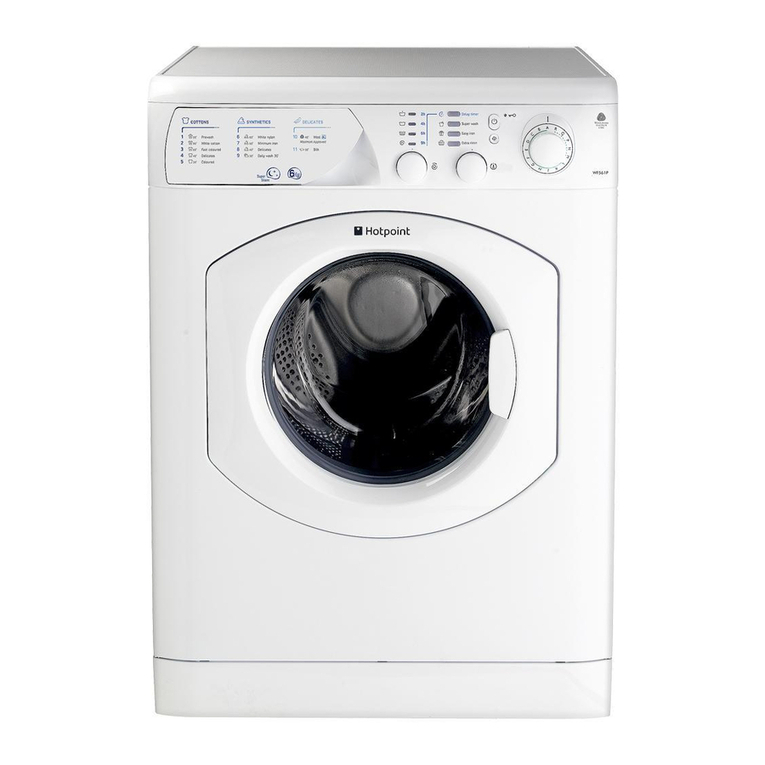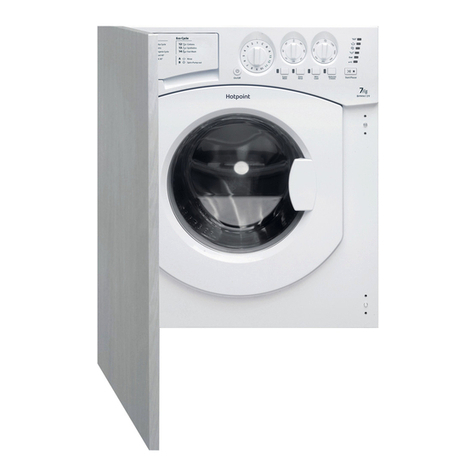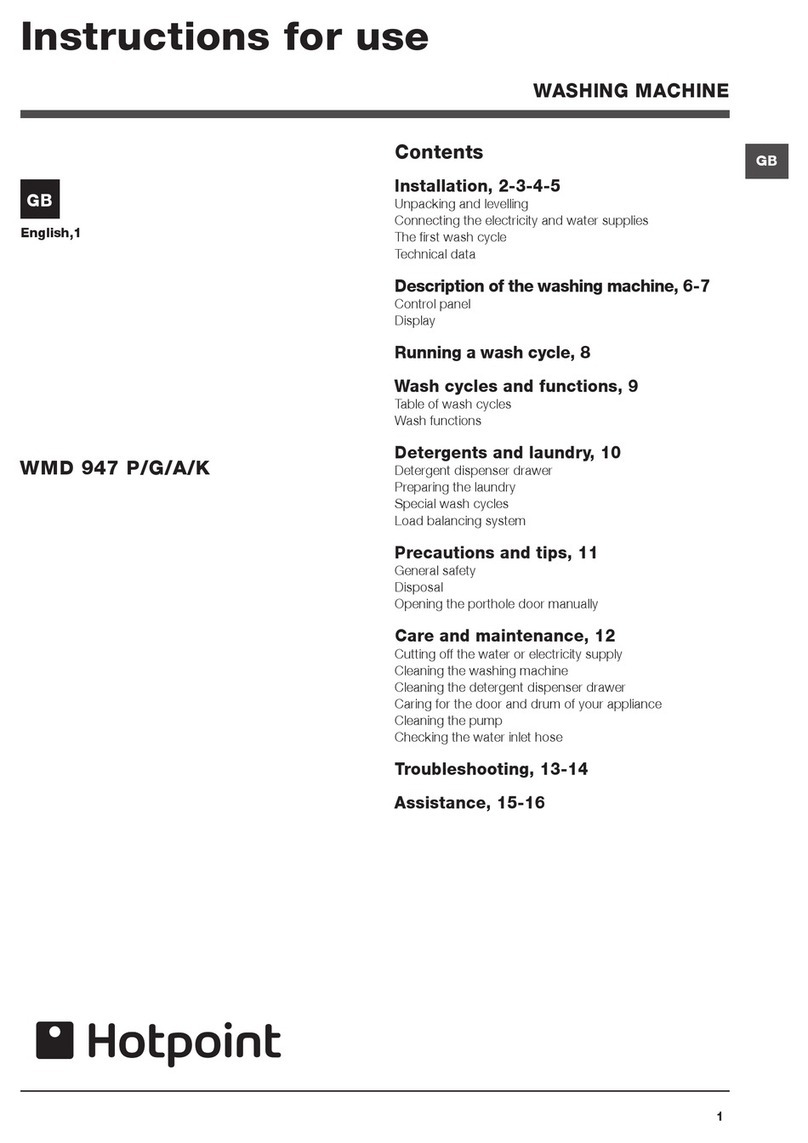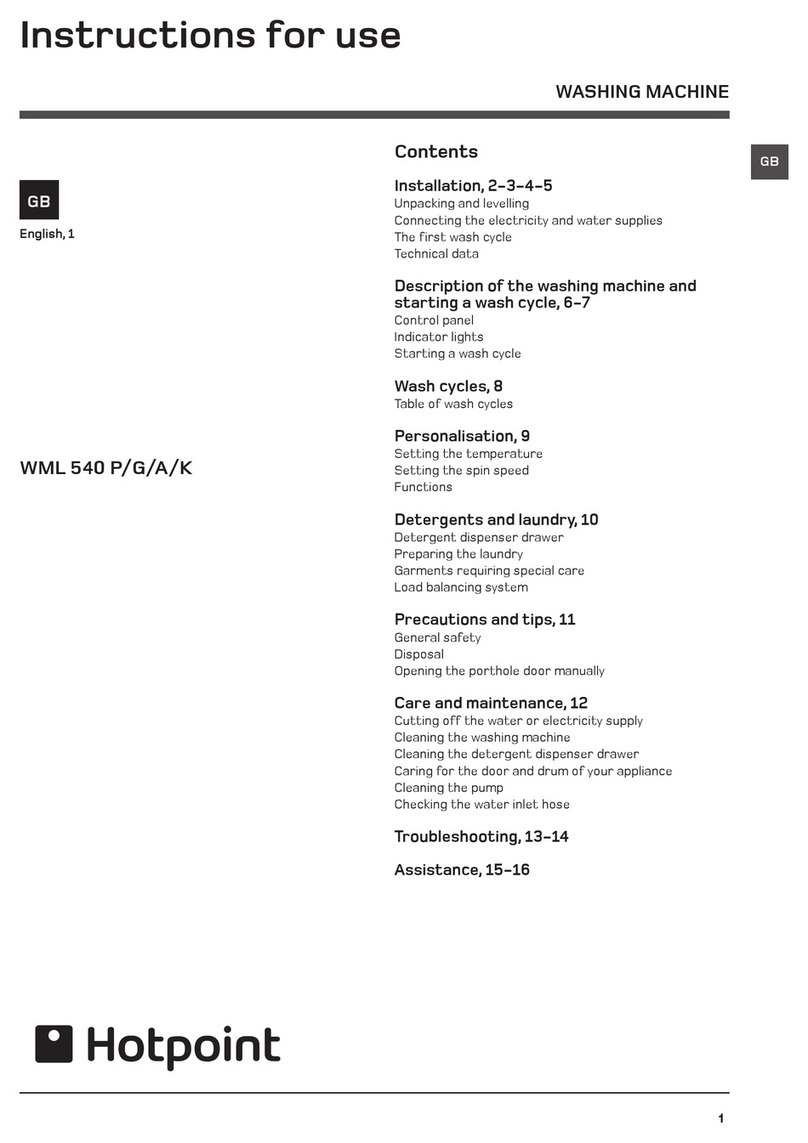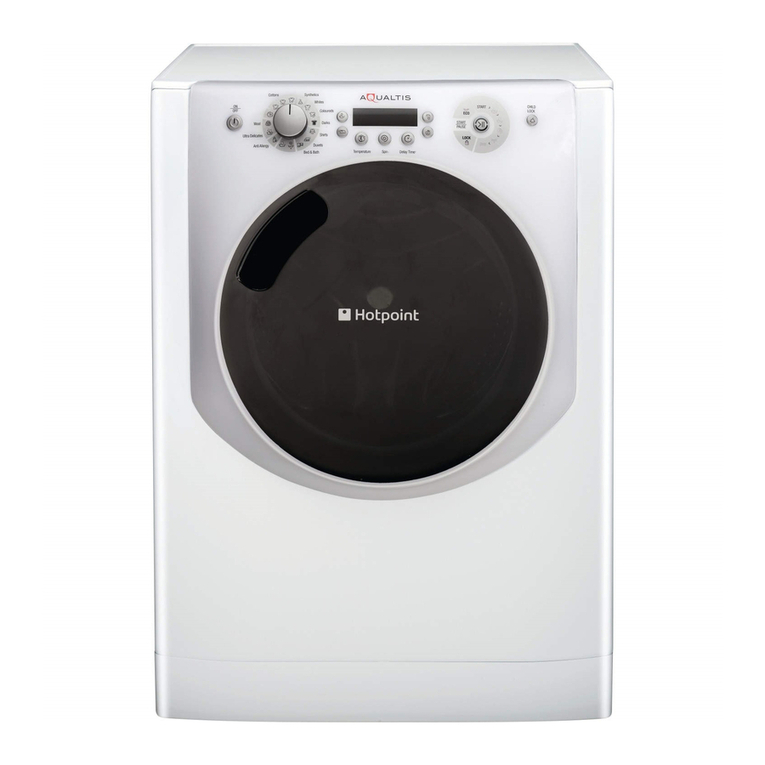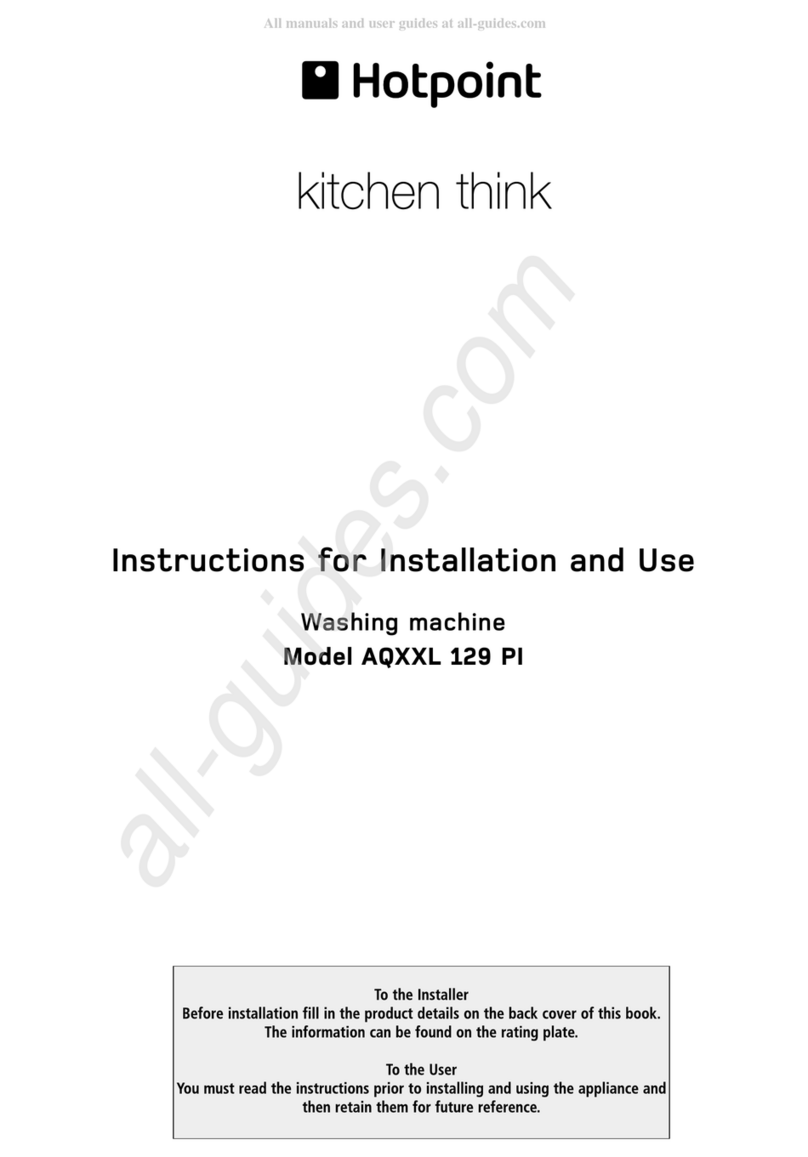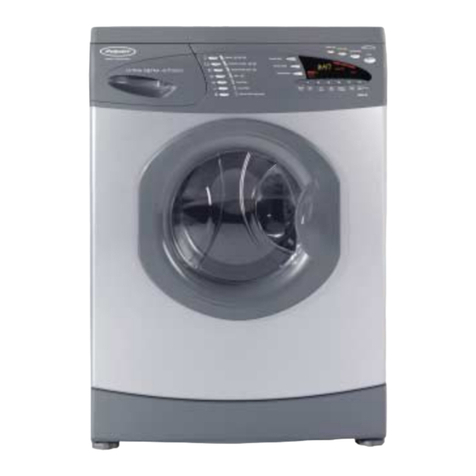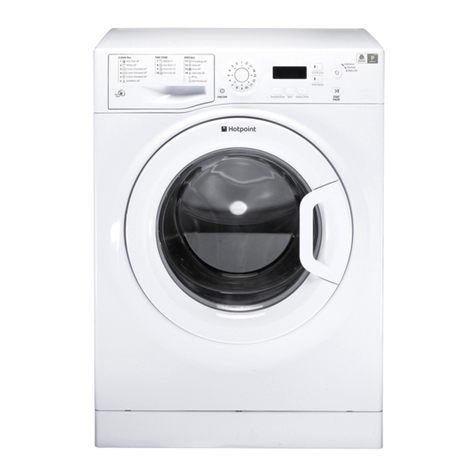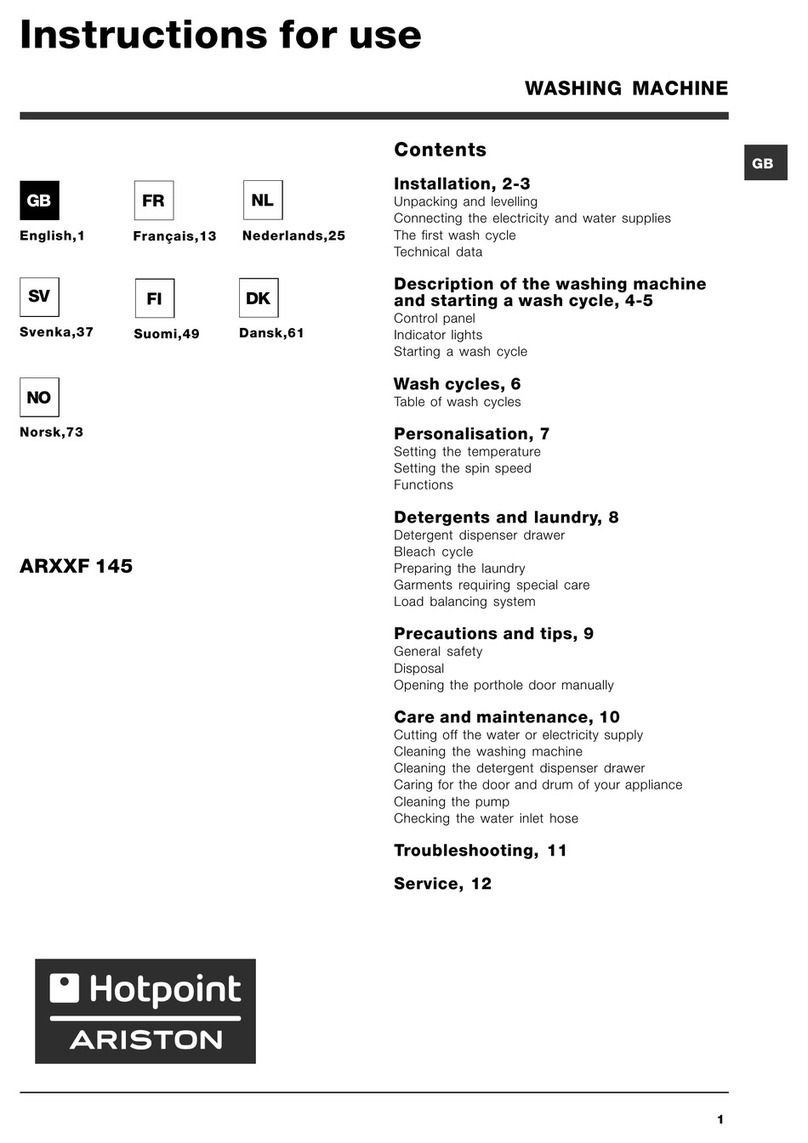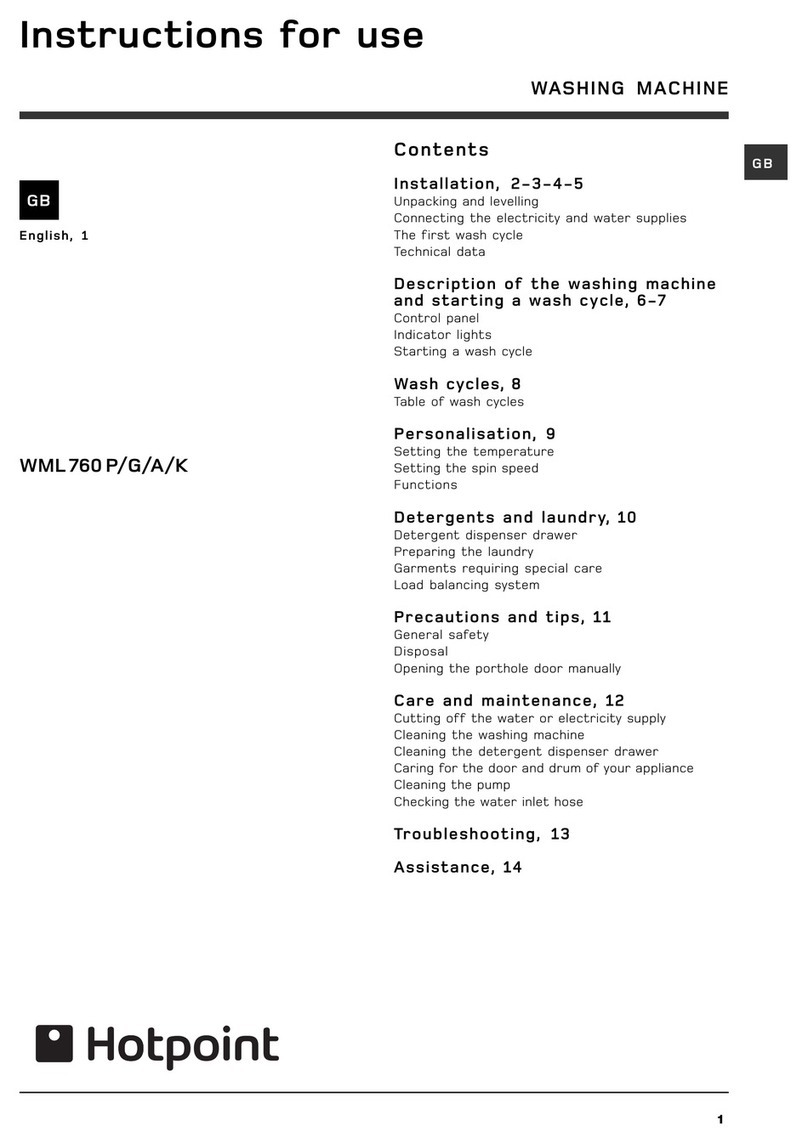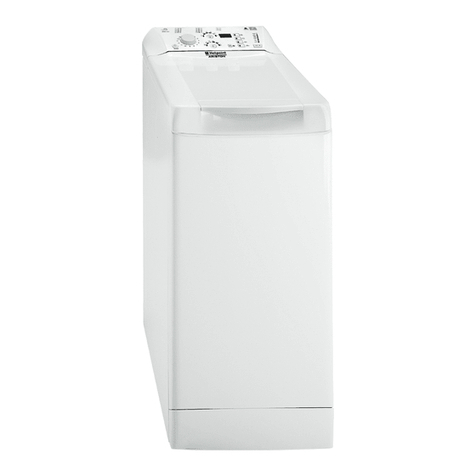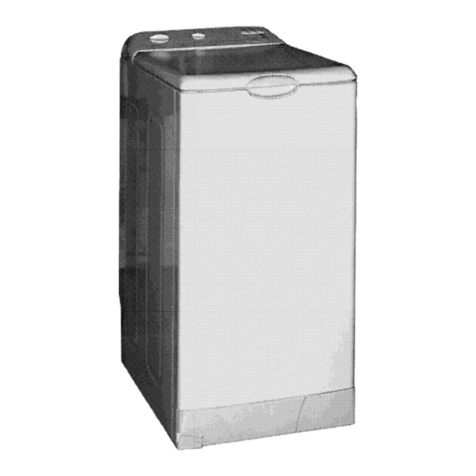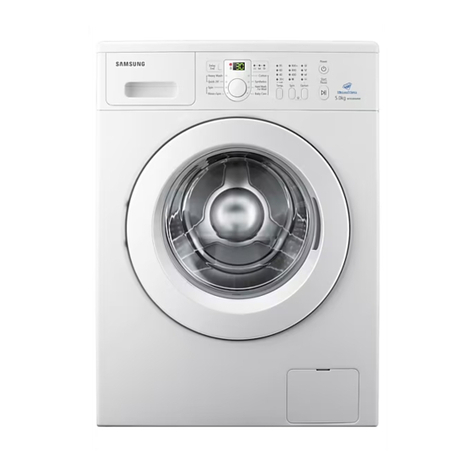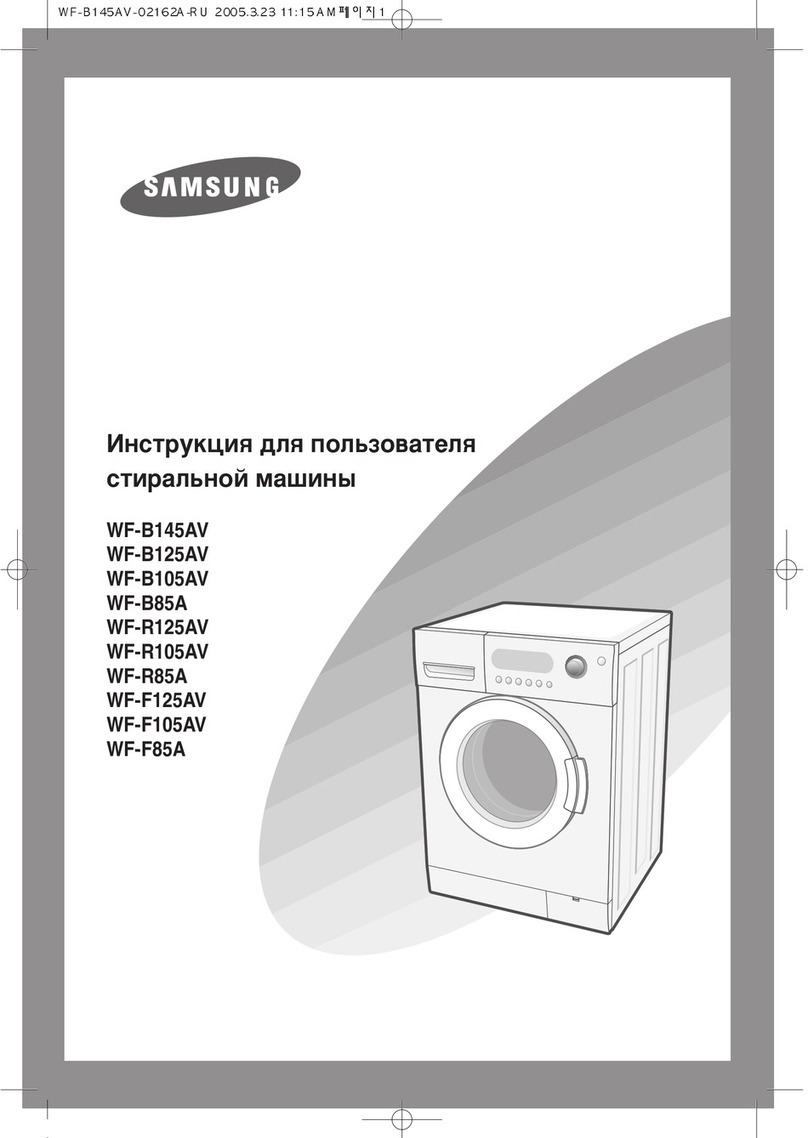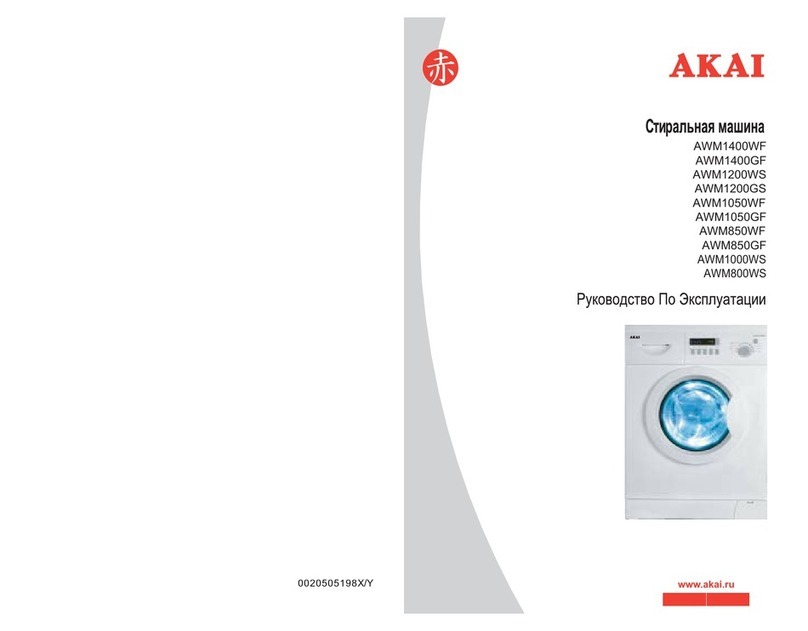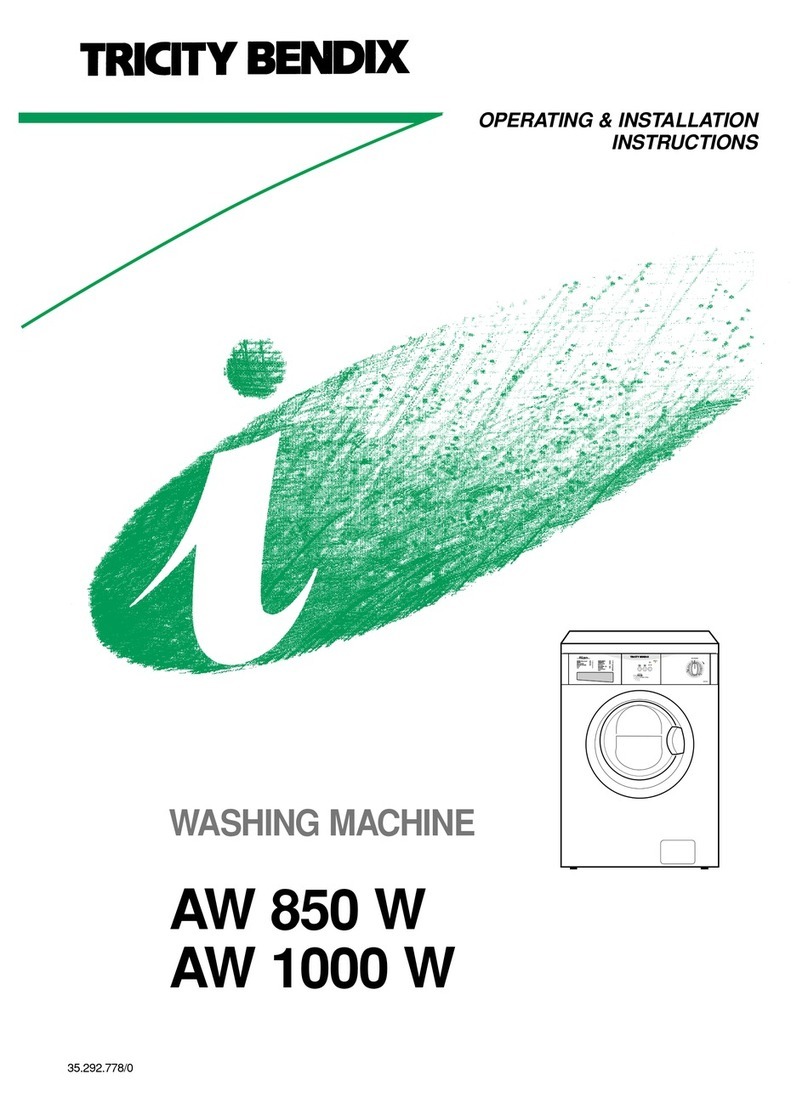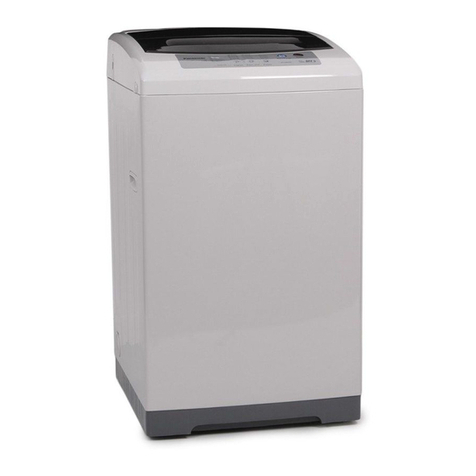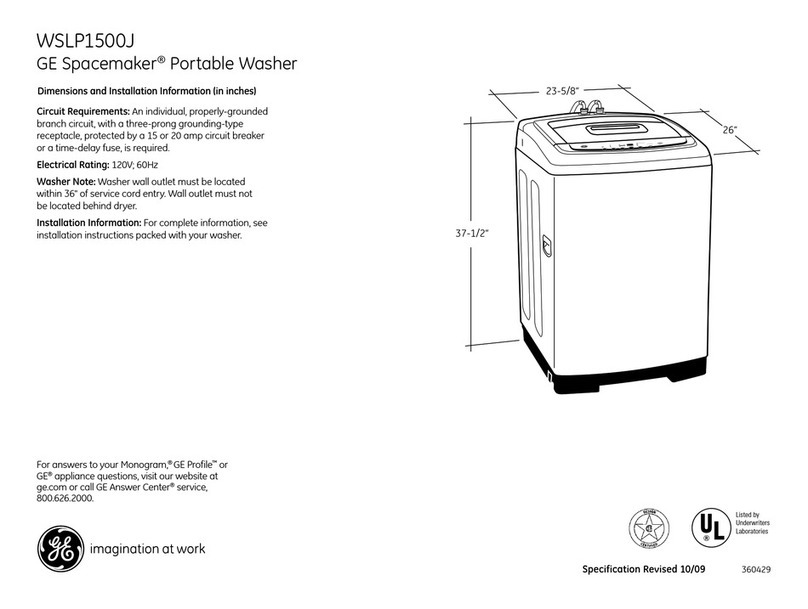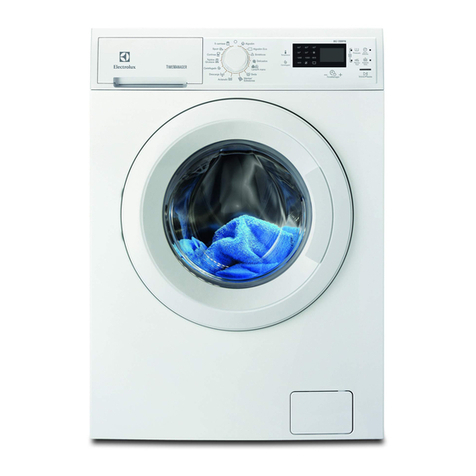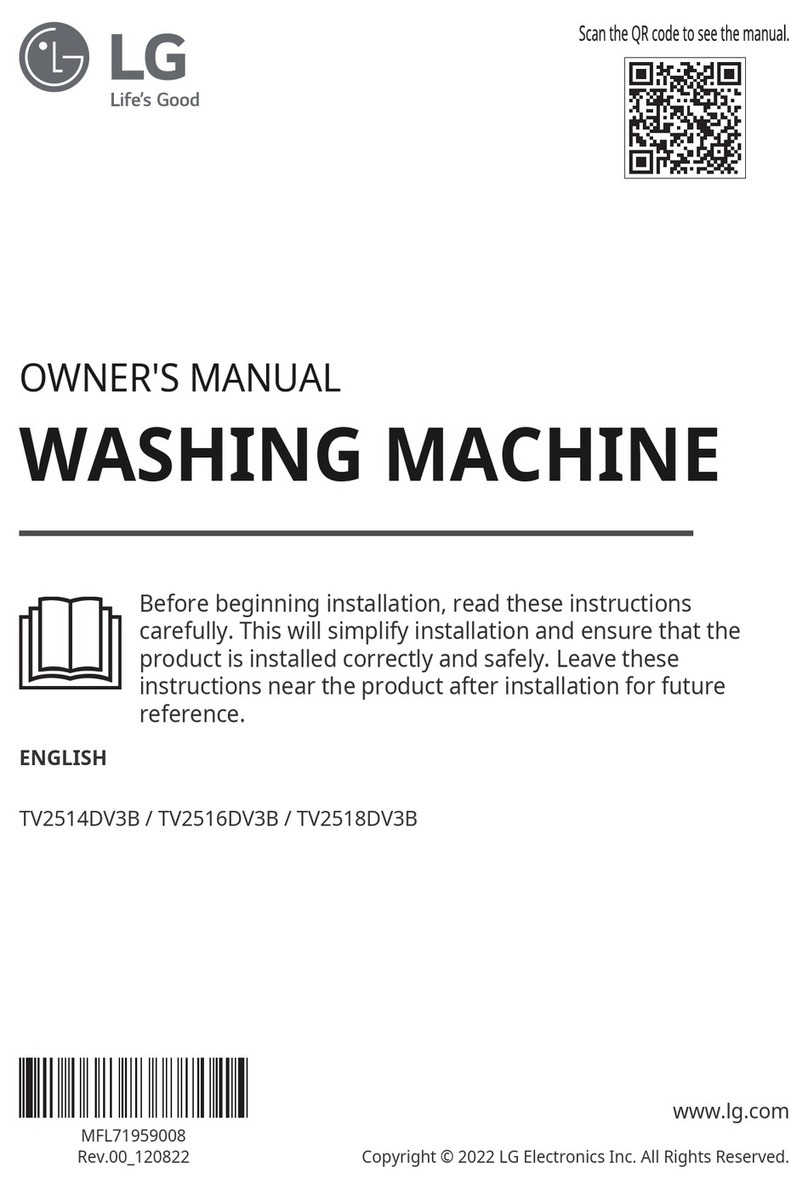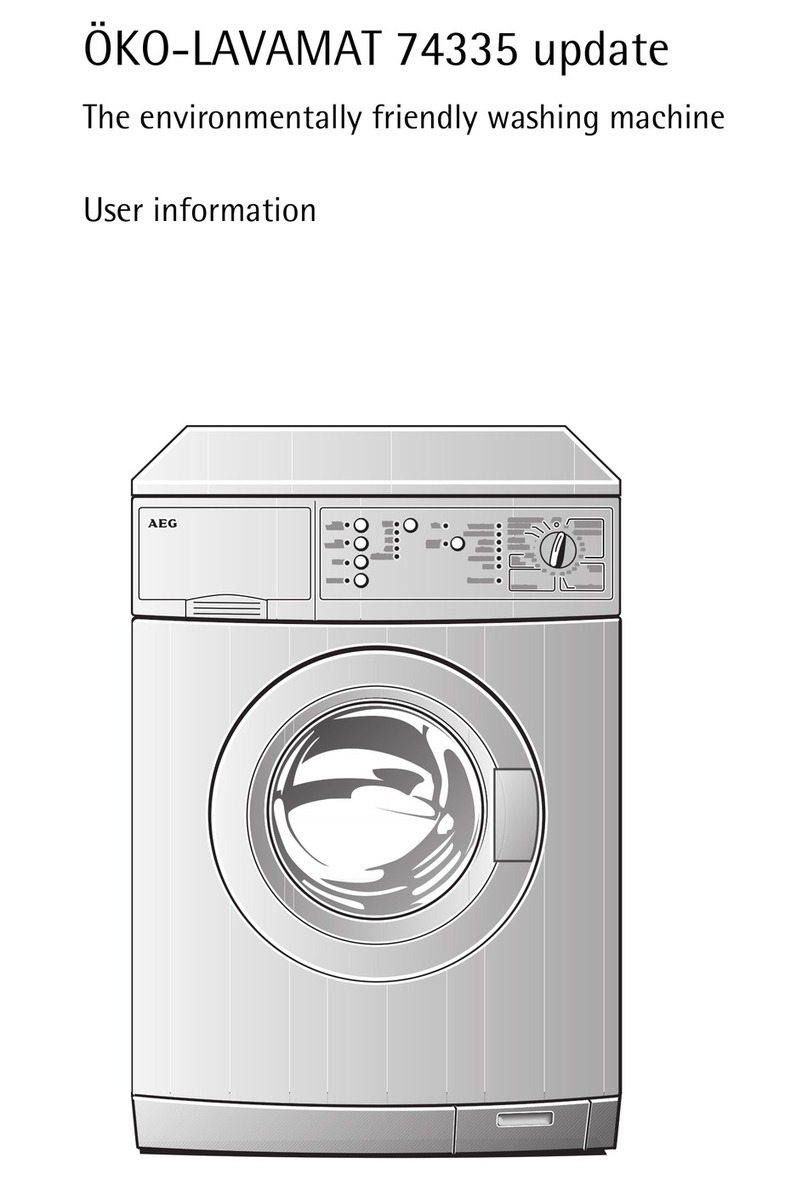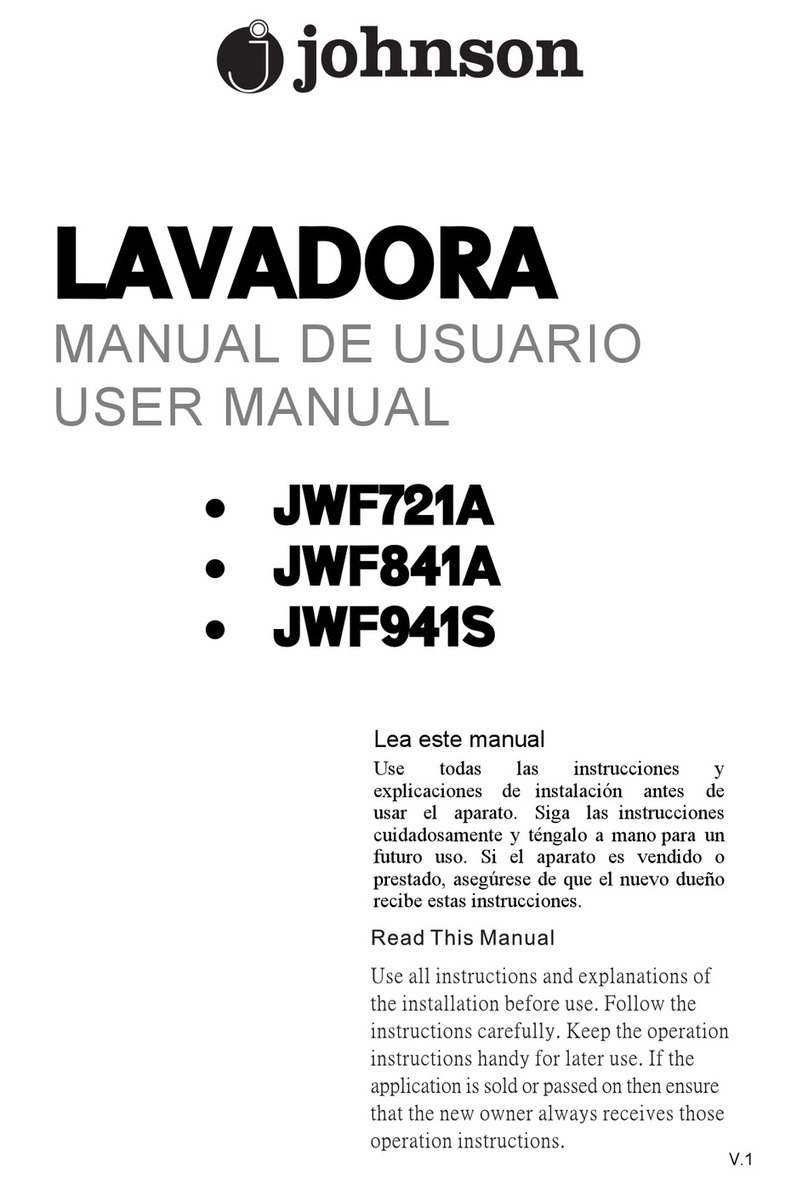GB
8
Running w sh cycle
NOTE: the first time you use the washing machine,
add detergent and run an empty 90°C cotton wash
cycle without the pre-wash phase.
1. SWITCH THE MACHINE ON. Press the
button. All the indicator lights will illuminate for 1
second and the text OK will appear on the display;
the indicator light corresponding to the
button will then remain lit in a constant manner
and the START/PAUSE indicator light will flash.
2. LOAD THE LAUNDRY. Open the porthole door.
Load the laundry, making sure you do not exceed
the maximum load value indicated by the display
and in the programme table on the following page.
3. MEASURE OUT THE DETERGENT. Pull out the
detergent dispenser drawer and pour the
detergent into the relevant compartments as
described in "Description of the machine".
For advice as to the type of detergent to use for
each cycle, press the button.
4. CLOSE THE PORTHOLE DOOR.
5. SELECT THE PROGRAMME. Turn the
PRO RAMME KNOB left or right, until the
required programme has been selected; the
name of the programme will appear on the
display. A temperature and spin speed is set for
each programme; these may be adjusted. The
recommended drum load level and the cycle
duration will also appear on the display.
6. PERSONALISE THE WASH CYCLE.Use the
relevant buttons on the control panel:
Modify the temper ture nd/or the spin
speed.The machine automatically selects the
temperature and the maximum spin speed for the
programme set and these values may not be
increased. By pressing the button, the tempe-
rature can be progressively reduced or even set
to cold wash OFF. By pressing the button, the
spin speed can be progressively reduced or even
eliminated altogether OFF. If the buttons are
pressed again the maximum values are restored.
Exception: if the WHITES programme is
selected, the temperature can be increased up
to a value of 90°C.
Setting del yed st rt.
To set a delayed start for the selected
programme, press the corresponding button
repeatedly until the required delay period has
been reached. When this option has been
activated, the symbol appears on the display.
To remove the delayed start option, press the
button until the display shows the text OFF; the
symbol will disappear.
Modifying the cycle settings.
Press the button to activate the option; the
name of the option will then appear on the
display and the corresponding indicator light
will illuminate.
Press the button again to deactivate the
option; the name of the option will then appear
on the display followed by the text OFF, and the
corresponding indicator light will switch off.
If the selected option is not compatible with the
set programme, the indicator light will flash and
the option will not be activated.
If the selected option is not compatible with
another option that has been selected previously,
the indicator light corresponding to the first option
selected will flash and only the second option will be
activated; the indicator light corresponding to the
active option will remain lit in a constant manner.
The options may affect the recommended load
value and/or the duration of the cycle.
7. START THE PROGRAMME. Press the START/PAUSE
button. The corresponding indicator light remains lit in
a fixed manner and the porthole door locks (the DOOR
LOCKED indicator light illuminates). During the wash
cycle, the display will show which stage is currently in
progress and the icon corresponding to each stage will
illuminate. To change a programme whi e a cyc e is in
progress, pause the washing machine by pressing the
START/PAUSE button; then select the desired cycle
and press the START/PAUSE button again.
To open the door while a cycle is in progress press the
START/PAUSE button; if the DOOR LOCKED
indicator light switches off it is possible to open the
door. Press the START/PAUSE button again to resatrt
the programme from the point at which it was
interrupted.
8. PROGRAMME END. The text END lights up to
indicate that the programme has ended. The
porthole door may be opened immediately. If the
START/PAUSE button flashes, press the button
to end the cycle. open the door, unload the
laundry and switch off the machine.
If you wish to cancel a cycle that has already
begun, press and hold the button. The cycle will
be stopped and the machine will switch off.
BAG FOR QUILTS, CURTAINS AND DELICATE
GARMENTS
Hotpoint has made it easier for you to wash even the
most valuable and delicate garments in complete
confidence thanks to the special bag which protects
the laundry (this is supplied with the machine).
We recommend that the bag is used every time you
wash qui ts and padded items with an outer ayer
made using synthetic materia .
